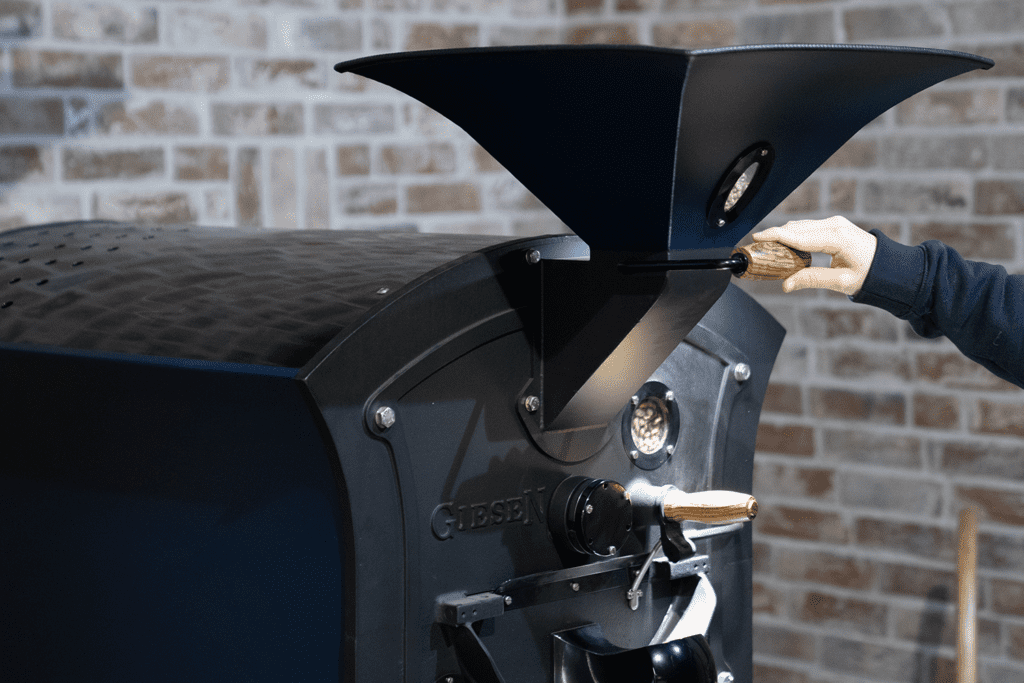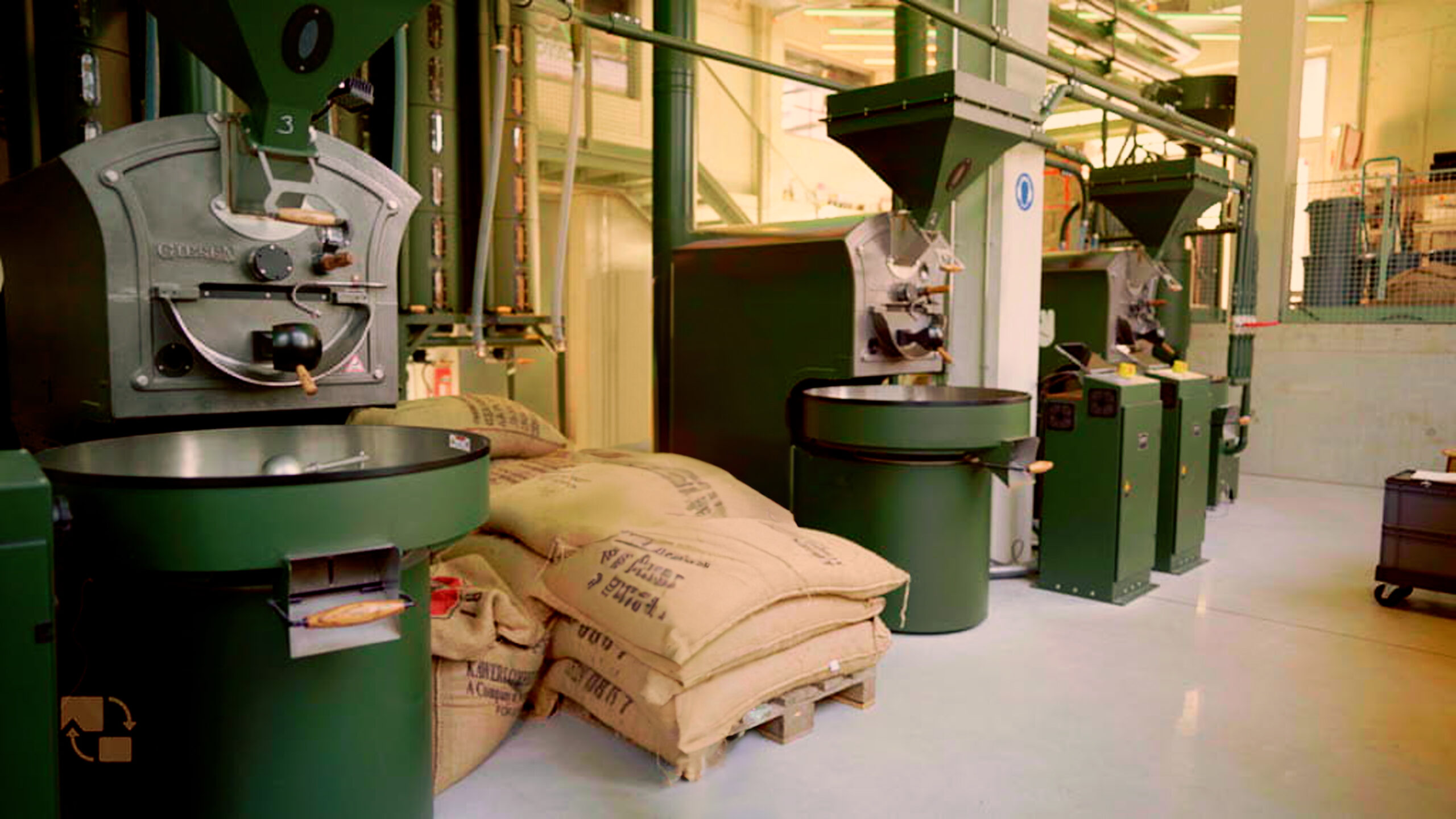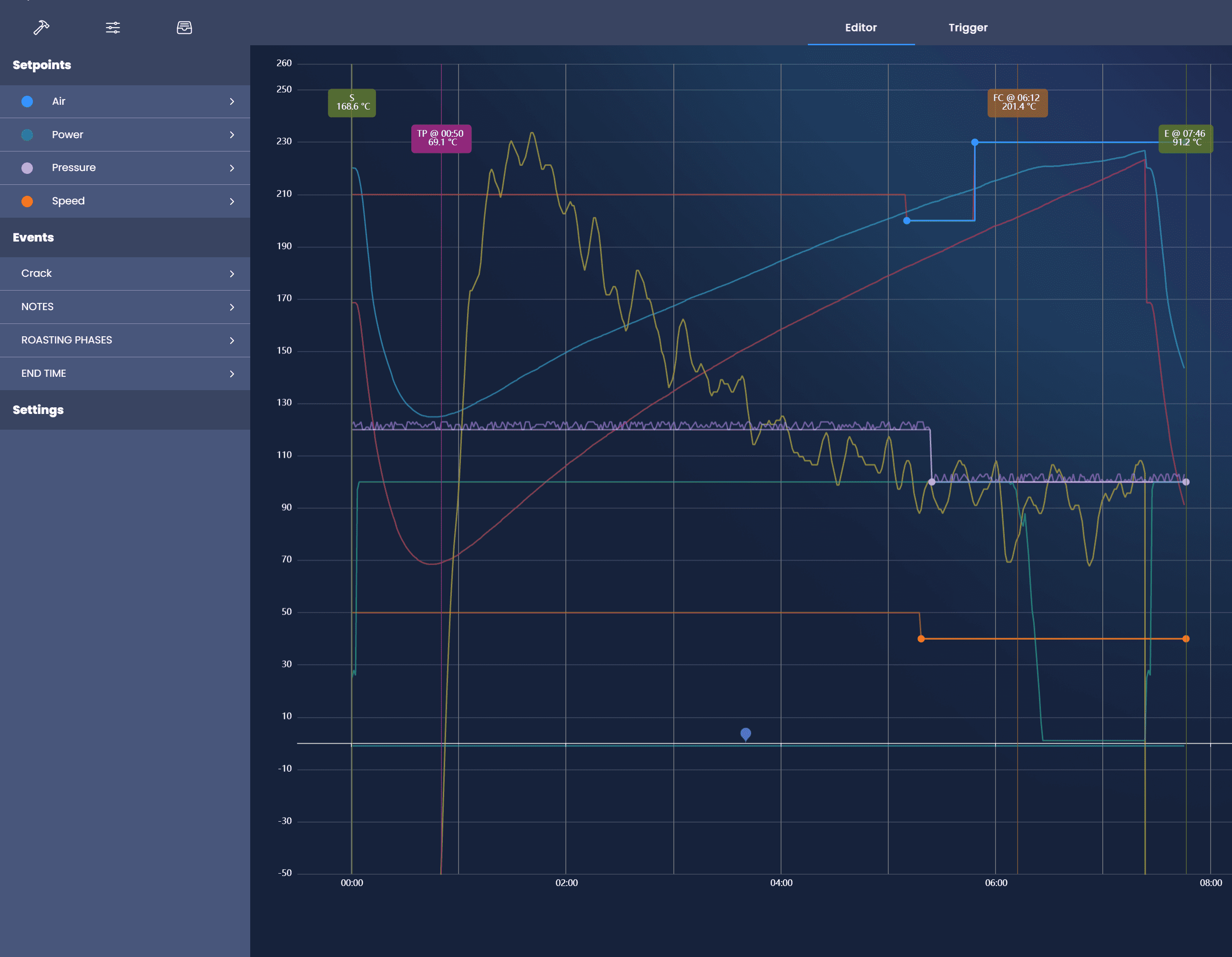Today we talk with Jasper Overdevest. Owner of Nordkapp Coffee based in Utrecht, the Netherlands. In 2015, Nordkapp Coffee opens to introduce people to great coffee. His mission? Freshly roasted coffee, transparently traded and supported with love. Let’s talk to Jasper about great coffee.
Cisca: ‘Hello Jasper, I’m really looking forward to this podcast because I think there is one thing that really defines you as a roasting professional and that is that you have a mission to make the coffee industry more transparent. I’m all for that because what really bothers me is the marketing around so-called good coffee. I can really be frustrated about the amount of wrong information towards consumers and the confusing business we sometimes have to deal with. I was wondering, how do you deal with this when you have such a strong mission?’
Jasper: First of all, I have to say that when I started Nordkapp, I had this mission to do things differently than the big industrial coffee world. Because I came from the big industrial coffee world. I used to work at a huge coffee roaster in Belgium. And I wanted to do some things differently. That was 6 years ago.
When I started Nordkapp Coffee, I thought it was easy to do but now 6 years later, I’m still learning to do it differently. But I have to say, a lot of things have changed in the coffee world over the last 6 years. So that’s useful for smaller roasters like me who have the same kind of mission. When I started buying my own green coffee, I wanted to buy quality coffee from semi-specialty coffee traders. And I thought that this would ensure that the farmers would get paid fair prices. But in the last 6 years, I found out that first of all, a lot of people don’t know the fair price for coffee and second, as a small roaster, it’s hard to make sure that when you buy coffee from a trader, that they pay a fair price to the farmers. So I’m still working on that, same as other companies.’
Cisca: ‘Is that also your biggest struggle that it’s still a difficult process?’
Jasper: ‘Yes, for 2 things it’s difficult. I want to buy only green coffee where the farmers get paid well and the other thing is that my customers, I sell a lot of coffee to restaurants and bars, they like my coffee because it’s tasty and they buy it from a local roaster. However, sometimes they are not that interested in where I bought the coffee. So I care more about the system than some of my clients. For example, we have a lot of different coffees and I have one blend with some Robusta in it. When I started buying Robusta, it was a cheap coffee, but now it costs a lot more. And sometimes it’s hard to explain to my customers that it’s an expensive coffee. Or not expensive, just less cheap. That can be hard.’
Cisca: ‘One of the questions I had for you is how and where do you buy sustainable coffee?’
Jasper: ‘I always buy the coffee through traders. With traders, I also see a difference compared to 6 years ago. With most of them, I know they first ask the farmers what the price of the coffee is, instead of naming a price themselves. I think that’s the first question you should ask. Because we do business together. You should ask the price instead of naming a price. That’s the first step. Besides that, I try to buy the same coffee from the same farmers every year. So for me, sustainability is also buying the same coffee year after year from the same farmer.’
Cisca: ‘It’s also investing in a farmer so that they can grow as entrepreneurs as well. I also think knowledge is key. I think if we have the knowledge, we should share it with the country and the farmers.’
‘Do you think that sustainable coffee needs a label for example like Fairtrade?’
Jasper: ‘When I started 6 years ago, I said that I didn’t want to do labels because I don’t like it and I think it’s more for the bigger markets. And I still don’t really like it, but I understand it better now. Because only saying that you don’t do labels because you know your farmers is not enough.’
Cisca: ‘It’s a dilemma. I think that most of the labels that started with a good vision, are now commercial labels. Money took over.’
Jasper: ‘Yes and I think that they started from the wrong point. They started from the c market and improved a little bit, instead of just buying coffee for a good price.
However, we are growing, and we want to sell the same coffees the whole year through. And because we’re growing and need more coffee, it’s getting harder to make sure that you have the right amount of coffee. For example, I run out of one coffee last month, and the new coffee comes in half November, so we have a problem. So, I have to find another Brazilian coffee and that’s quite hard.’
Cisca: ‘We as roasters put a lot of effort in making sure that we have the coffee we require for the same quality and blend. But like with wine, when it’s finished, it’s finished. Isn’t it also our responsibility that people know it’s a product of nature? Like when it’s finished, it’s finished. That all started with the bigger companies. The big brands always have the same flavor, year after year. That is quite strange if you think about it. However, is it a problem that you don’t have the coffee anymore or is it a charm? As roasters, we have the responsibility to tell our customers like the coffee is out of stock. We get it in half November and for the next month, we can recommend you this.’
Jasper: ‘Yes, but it also has to fit your company. Even for small companies, it’s sometimes difficult to change the system you created. And maybe one day I will and do it as you just told. Consumers are more likely to experiment. They don’t mind because, in the essence, they know it’s all good coffee.’
Cisca: ‘Like you said. In the last 6 years, the coffee industry really changed. And also, consumers changed. But everything starts with awareness. Let’s make an agreement that six years from now, we changed the way people think about coffee. We try to make sure that people notice that coffee is a product of nature. Instead of making sure that we as roasters are responsible for the fact that we have a certain coffee all year round. Let’s go with that. And if there are roasters who like to join our mission, they are more than welcome.’
Jasper: ‘Yes, I wrote it down!’
5 years from now
Cisca: ‘What do you think it’s the most important thing our industry needs to gain in the next 5 years from now?’
Jasper: The most important thing is the whole balance, the whole value chain from the farmer to the end of the cup. It doesn’t have to be out of balance. Last week I was in Italy on a holiday and the price for a cup of coffee is much lower there than in the Netherlands. And I don’t think that the price of an espresso should go down over here, but the price of the green beans should go up.’
Cisca: ‘So you think that there should be more balance in the cost price of coffee?’
Jasper: ‘Yes. I think that what we see with coffee and also with other systems in the world, is that you can’t leave the responsibility with the end consumer because we see that it doesn’t happen. If you told all the consumers in the Netherlands that they should go to the local baker or roastery, they like it but in the end, they don’t do it. So, in the end, the supermarkets have the power.’
Cisca: ‘I think the most important thing is that people develop their flavor, and they keep experimenting with coffee. If they first buy my coffee and after that, they buy from another roaster, I don’t mind. Because that means that they are still interested in local and smaller produced coffee. I think that Is more important.
What do you think roasters worldwide need to do to create a better world for farmers, roasters and maybe the earth?’
Jasper: ‘I think if you want to make more impact and really change something, we should buy bigger volume, so more coffee, from the farmers. So don’t just buy that one lot with the highest price and very low volume. I try to buy bigger volumes from maybe a slightly lower grape, you know it’s still high quality. I think that makes more impact. We can sell more of those coffees and it’s much easier to really help the farmers that way.’
Cisca: ‘Is fair coffee a healthy business model?’
Jasper: ‘It can be, yes. It’s not easy but I think if you believe in yourself as a business owner or entrepreneur then yeah sure why not.’
Cisca: ‘If you can give the listeners one of your most valuable tips for running a healthy business model with fair coffee. What would that be?’
Jasper: I’m not sure if it’s only for a transparent coffee business model, but in the end having a healthy business model I think most of the time means that you have the right product for the right customers. And you’re actually selling your products to those customers. That’s the most important thing. And what you see online is that people ask what roaster they should buy or what kind of packaging machine. Of course, it’s important but you have to sell your coffee. So that’s the most important thing. You have to find customers who buy your coffee. So, if you want to do it transparently, and that’s also for me something to learn, find customers that want to buy that type of coffee. And if you’re a local roaster, it’s hip and trendy so a lot of people will come to you, but not everybody will understand what kind of coffee it is and that it’s not the same as supermarket coffee. So, they’re maybe not the perfect fit for your company.’




